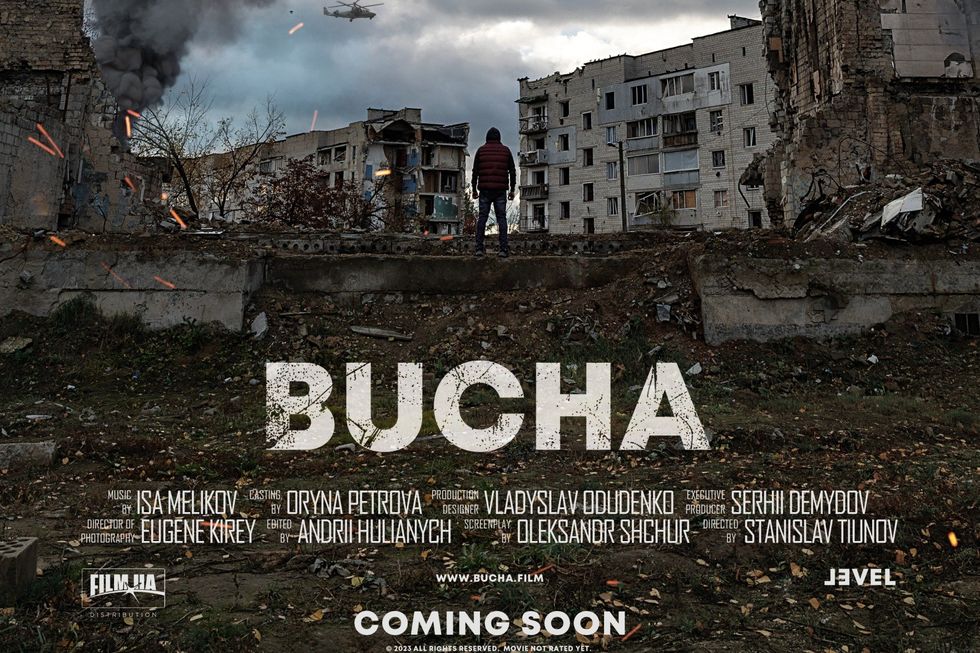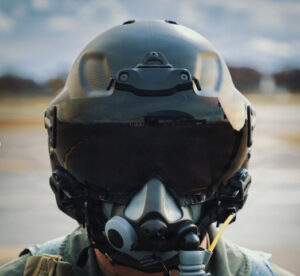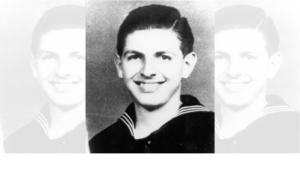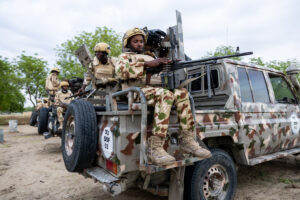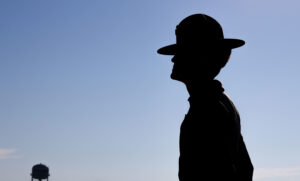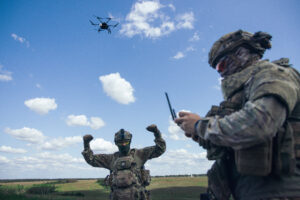KYIV — After a long world tour with private screenings and a premiere at the Warsaw Film Festival, the film Bucha by Ukrainian director Stanislav Tiunov has finally been released in Ukrainian theaters. The film is based on a true story of a refugee from Kazakhstan who, in spring 2022, saved hundreds of Ukrainians in Bucha and in other occupied cities and towns. The film was shot on location in March 2023 — where a year earlier, Russian soldiers murdered Ukrainian civilians and prisoners of war, and where the identification of the victims was still ongoing.
For the latest news & views from every corner of the world, Worldcrunch Today is the only truly international newsletter. Sign up here.
This led to an ethical debate about whether it is worth making a feature film about the horrors of war during the war and whether it is right to use real places of tragedies as set design. Is the film is really as odious as the media have been saying?
Steven Spielberg spend a decade developing Schindler’s List, which became a cultural embodiment of the Holocaust tragedy and won seven Oscars. Yet the American filmmaker, whose relatives died in Nazi concentration camps, first tried to pass the project to several other directors, including Sidney Pollack, Martin Scorsese and Roman Polanski.
He finally began production of the film in 1993. The events of the Holocaust had taken place almost 50 years before. Yet he was criticized for trying to make a blockbuster out of the tragedy.
In the case of Bucha, director Tiunov, who previously produced the cringe-comedies Producer and Date in Vegas, as well as screenwriter and producer Oleksandr Shchur, who also contributed to Date in Vegas and Me. You. He. She. — a 2018 romantic comedy directed by and starring Volodymyr Zelensky — are no Spielbergs.
Instead of long reflections, they offer sharp reflexes. That’s why they started shooting a feature film about the genocide in Bucha less than a year after the tragedy.
The next Schindler’s List?
The script is based on the true story of Konstantin Gudauskas, a Lithuanian Jew and a citizen of Kazakhstan, who used his Kazakh passport to travel to Russian-occupied Bucha and surrounding areas to assist escaping civilians. His passport allowed him to pass checkpoints, albeit with difficulty, but without the threat of being shot on the spot.
The story — that of a man to whom this war is completely foreign, but who volunteers to save people, crossing the border between occupied and free territory — resembles some ancient myth or Old Testament parable.
Yet in Bucha, this is only a serial template, which the filmmakers fill in with typical TV sentimentality, inept allusions to The Divine Comedy and the Bible, and a sense of heroic pathos, as if Bucha had achieved the cult status of Schindler’s List when filming started.
Narrative gaps
The basic conflict of the film is an indirect confrontation between two characters: Gudauskas (played by Polish actor Cezary Lukaszewicz) and his antagonist, FSB Colonel Nikolai Ivanovich (played by Vyacheslav Dovzhenko). Compared to his previous roles in films Slovo House. Unfinished novel and Another Franko, Dovzheko plays an FSB colonel without excessive theatricality.
While his character is a cold-blooded and intelligent executioner, he is not Ralph Fiennes as Nazi war criminal Amon Göth. Still better than previous Russian antagonists in Ukrainian cinema, Dovzhenko sometimes goes overboard with the black cigar, snake lighter and stone face when he abruptly pulls out a Glock. For example, when he shouts that Ukraine does not exist and tells jokes with billiard balls.
It is also not entirely clear why a colonel from the Nizhny Novgorod regional department of the FSB (these are the documents he burns in the finale) was important enough to coordinate the genocide in Bucha. And the fact that a person of such rank would steal bloodstained trainers for his daughter is also hard to believe.
The film’s portrayal of Gudauskas is sparse.
But in contrast to the charismatic maniac Ivanovich, the screenwriters do not offer anything. The film’s portrayal of Gudauskas is so sparse that you have to Google him to find out anything about the character. According to open sources, Gudauskas was persecuted and tried in Kazakhstan for his activist activities. The film actually begins with a court scene, but what it is about (as well as the next scene with Hoverla) is not fully clear in the plot.
As if in a B-movie thriller, Gudauskas’ operations are managed by the mythical Heide (only in the final credits do we learn that she is a curator from the GUR — Defense Intelligence of Ukraine). So it remains unclear: Is Gudauskas just a civilian volunteer or is he a freelance agent of the GUR?
Lukaszewicz has several dialogues with the military — including Oleksandr Pecherytsia, an actor who took part in the war in the Kyiv and Kharkiv regions. Apparently, the filmmakers tried to show Gudauskas as a kind of biblical character who goes through fear, pride and sacrifice. Yet in the full-length film, all these transformations are vague — it might take one hundred episodes to reveal the character.

Thin line between drama and exploitation
Between the confrontation of characters, the film is filled with serial kitsch and open exploitation of the theme of war. The creators of the film offer us banal scenes: the FSB colonel playing “Swan Lake” on the piano; the escape of a raped girl from the basement; and the cries of a crow. The scene of the demonstrative execution resembles a reference to the Soviet film, but at the same time it is full of glamor of gangster series of the 2000s.
The film turned out to be just a kitsch serial drama with elements of a thriller.
Tiunov and Shchur actively exploite the most mediatized tragedies of the war: The death of Iryna Filkina, whose manicure became one of the symbols of the Bucha genocide, Chechnya’s “TikTok warriors” and Russian soldiers’ theft of washing machines are also featured in the film — thrown together with too many drone shots.
Worldcrunch 🗞 Extra!
Know more • In February 2022, Russian forces moved into and occupied the town of Bucha, near Kyiv, as part of Russian President Vladimir Putin’s invasion of Ukraine. The offensive took place early on in the conflict due to the city’s proximity with the capital, which the Kremlin aimed to encircle.
Dozens of Ukrainian civilians were brutally killed (458 according to Kyiv; up to 178 according to the UN High Commissioner for Human Rights), while investigations revealed evidence of torture, execution, mass graves, looting and rape. It took until April 2022, and the withdrawal of Russian army, for this to come to light, when the first photographs began to circulate of massive destruction and streets littered with corpses in civilian clothes.
Russian authorities dismissed the photographic and video evidence as a “hoax, a staged production,” despite eyewitness accounts of the events. Satellite imagery ultimately disproved Moscow’s version of events.
Along with Mariupol, Irpin and Bakhmut, Bucha — although now almost entirely rebuilt — has become emblematic of the war’s brutality and the war crimes committed by Russian forces in Ukraine. — Bertrand Hauger (read more about the Worldcrunch method here).
Give it time
There are scenes of violence in the film, but it is not entirely clear who exactly is being killed. That is the main problem; The filmmakers need the audience to empathize with the characters on a basic level. The film features no stories of real victims in Bucha.
Even so, it is worth noting that there is less violence in Bucha than, for example, in 2024 trash-horror film The Daughter by Ukrainian director Yehor Olesov, which exploits the theme of sexual violence in Bucha and includes a number of scenes of attempted rape.
While the publicity campaign for Bucha was loud and scandalous, the film turned out to be just a kitsch serial drama with elements of a thriller. Tiunov and Shchur aspired to create the next Schindler’s List with a bunch of Oscars and the status of a living classic, but they made a film to be broadcast on Sunday after the newscast.
Bucha demonstrates why artistic reflections on real tragedies sometimes are best captured after a certain period of time.

